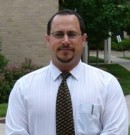FOR EXPERT COMMENT: Midwest Can Expect More Tornadoes, Severe Storms This Spring, MU Expert Says
March 9th, 2010
The views and opinions expressed in this “for expert comment” release are based on research and/or opinions of the researcher(s) and/or faculty member(s) and do not reflect the University’s official stance.
COLUMBIA, Mo. – Midwesterners anxiously awaiting the escape of bitter cold weather and the arrival of spring may not have much pleasant weather to look forward to this year. Tony Lupo, department chair and professor of atmospheric sciences in the College of Agriculture, Food and Natural Resources at the University of Missouri, says the approaching storm season could be more active than normal.
 Lupo says the upcoming weather pattern resembles that of the 2002-2003 season, the worst season on record, when as many as 109 tornadoes swept across Missouri. Similar to the 2002-2003 season, scientists have recorded a weak El Nina temperature trend in the Pacific Ocean, a colder than usual winter in the Midwest, and a jet stream running through the southern portion of the United States, all of which indicate a stormier season.
Lupo says the upcoming weather pattern resembles that of the 2002-2003 season, the worst season on record, when as many as 109 tornadoes swept across Missouri. Similar to the 2002-2003 season, scientists have recorded a weak El Nina temperature trend in the Pacific Ocean, a colder than usual winter in the Midwest, and a jet stream running through the southern portion of the United States, all of which indicate a stormier season.
“A weak El Nino tends to create warmer and very moist air that is pushed into the central U.S by the jet stream,” Lupo said. “The collision of this air with prevailing colder air triggers a clash of cold and warm air masses that produce strong thunderstorms.”
Mid-March to June is considered the Midwest storm season with stronger outbreaks occurring in late March and April when leftover winter air still lingers over the Midwest. This winter season was the 13th coldest winter since the 1890s and, despite a slight warming trend in late February, much of the northern U.S. still has a snow pack that will create cooler-than-normal conditions into the spring months, according to Lupo.
In addition to an increase of tornadoes this spring, Lupo expects frequent severe storms with damaging winds, hail, lightning and flash flooding.
“We’ve been stuck in a prolonged period of winter weather that could change quickly into a stormy spring,” Lupo said.
Lupo received his doctorate from Purdue in 1995 and is currently the principal investigator at the Global Climate Change Group. The Global Climate Change Group investigates how global climate change may impact long-term weather patterns and the growing season in the Midwest. He has written 34 papers on factors that influence large-scale weather patterns. Lupo is also a member of the Intergovernmental Panel on Climate Change which shared the Nobel Peace Prize with Al Gore in October 2007.

